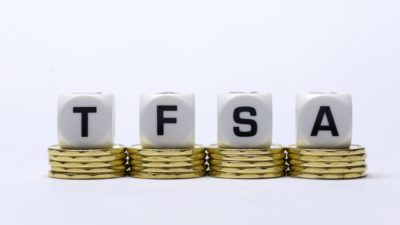Royal Bank of Canada (TSX:RY) is Canada’s largest bank by revenue and market capitalization (i.e., the value of all the shares combined). It also has a major presence in U.S. investment banking and global wealth management. Just recently, the bank completed the purchase of HSBC Canada from HSBC (NYSE:HSBC) in a deal that will add $170 million in quarterly earnings power should the bank keep earning what it earned in the fourth quarter.
RY paid $13.5 billion for HSBC Canada. $170 million per quarter works out to $680 million per year. It would appear that RY paid an un-heard of 19.85 times earnings for HSBC Canada at a time when the S&P 500 banking index trades at 10.5 times forward earnings! RY is saying that it will cut costs by 55% and squeeze more value from HSBC Canada than HSBC could, but these types of statements are usually not best taken at face value. By all accounts, Royal Bank’s HSBC Canada deal was one of the most expensive in global banking in many years. Indeed, it was the most expensive such deal in Canadian banking history.
Nevertheless, Royal Bank of Canada has many things going for it. 12-month revenue is up 11% over the last year, and earnings have compounded at 5% per year over the last five years. The company’s past performance was pretty good. The question is, will it continue to be good going forward? And does it make the stock worth its current asking price?
Recent earnings
We can start to gauge Royal Bank’s value by looking at its most recent earnings. In its most recent quarter, the bank beat analyst expectations on revenue and adjusted earnings but missed on reported earnings. Reported earnings means earnings calculated according to generally accepted accounting principles (GAAP), and adjusted earnings means earnings calculated how the company sees fit. The specific results were as follows:
- $13.4 billion in revenue, up 0.9%
- $3.6 billion in reported earnings, up 14%
- $4.1 billion in adjusted earnings, down 5%
- $2.50 in diluted earnings per share (EPS), up 12%
Overall, it wasn’t a bad showing. The growth wasn’t as good as what some other banks did in the same period, but it was at least positive on the top line. The capital ratios were all pretty high. I wouldn’t worry about Royal Bank based on the results delivered last quarter.
Future prospects
Here’s where things start to get more questionable for Royal Bank.
Its future prospects. The bank’s last quarter wasn’t bad, but it just finished paying too much to buy out a competitor. Various acquisition costs will begin being booked starting in the second quarter (Q2). For Q2 alone, these costs are expected to cost $1.5 billion. Such costs will probably keep coming in for a few quarters and will hold back the bank’s profitability.
Valuation
Going by Monday’s closing price, Royal Bank trades at the following:
- 12.5 times earnings
- 3.6 times sales
- 1.8 times book value
It’s not the cheapest of Canadian banks; in fact, it has one of the highest valuations among them. It’s certainly not my number-one pick in Canadian banking.
My verdict: It’s a weak buy
Nevertheless, I consider Royal Bank a weak buy. It’s not cheap, and its earnings are probably going to be held back a bit by HSBC integration charges for the next few quarters, but it beats the value you get buying some of the extremely expensive tech stocks you see these days. I’m not buying it, but I don’t think those who are buying it are out of their minds.








